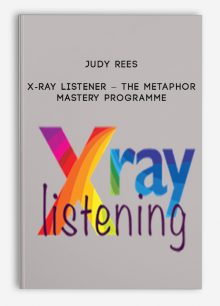I Thought It Was Just Me (but it isn’t): Telling the Truth About Perfectionism, Inadequacy, and Power – Brene Brown
$15.00
Product Include:[1 eBook – EPUB, MOBI]
File size:1.42 MB
I Thought It Was Just Me (but it isn’t): Telling the Truth About Perfectionism, Inadequacy, and Power – Brene Brown
**More information:
Sale Page
Archive Page
Get I Thought It Was Just Me (but it isn’t): Telling the Truth About Perfectionism, Inadequacy, and Power – Brene Brown at Salaedu.com
Description
I Thought It Was Just Me (but it isn’t): Telling the Truth About Perfectionism, Inadequacy, and Power – Brene Brown [1 eBook – EPUB, MOBI]
The quest for perfection is exhausting and unrelenting. We spend too much precious time and energy managing perception and creating carefully edited versions of ourselves to show to the world.
As hard as we try, we can’t seem to turn off the tapes that fill our heads with messages like, “Never good enough!” and “What will people think?” Why? What fuels this unattainable need to look like we always have it all together? At first glance we might think it’s because we admire perfection, but that’s not the case. We are actually the most attracted to people we consider to be authentic and down-to-earth.
We love people who are “real” – we’re draw to those who both embrace their imperfections and radiate self-acceptance.
There is a constant barrage of social expectations that teach us that being imperfect is synonymous with being inadequate.
Everywhere we turn, there are messages that tell us who, what and how we’re suppose to be. So, we learn to hide our struggles and protect ourselves from shame, judgment, criticism and blame by seeking safety in pretending and perfection. Based on seven years of ground-breaking research and hundreds of interviews,
I Thought It Was Just Me shines a long-overdue light on an important truth: Our imperfections are what connect us to each other and to our humanity.
Our vulnerabilities are not weaknesses; they are powerful reminders to keep our hearts and minds open to the reality that we’re all in this together. Dr. Brown writes, “We need our lives back. It’s time to reclaim the gifts of imperfection – the courage to be real, the compassion we need to love ourselves and others, and the connection that gives true purpose and meaning to life. These are the gifts that bring love, laughter, gratitude, empathy and joy into our lives.”
BiographyDr. Brené Brown is a writer, researcher, and educator. She is a member of the research faculty at the University of Houston Graduate College of Social Work where she has spent the past ten years studying connection – specifically authenticity, belonging, and shame, and the affect these powerful emotions have on the way we live, love, parent, work and build relationships.
Dr. Brown teaches graduate courses on shame and empathy, global justice, qualitative research, and women’s issues. She has won numerous teaching awards, including the College’s Outstanding Faculty Award. In 2008, Brené named Behavioral Health Scholar-in-Residence at the Council on Alcohol and Drugs Houston. She also serves on the working board of The Nobel Women’s Initiative – a peace and justice initiative established in 2006 by six Nobel Peace Laureates to help strengthen work being done in support of women’s rights around the world.
Brené is the author of I Thought It Was Just Me (but it isn’t): Telling the Truth About Perfectionism, Inadequacy, and Power (Gotham, 2007). She is also the author of Connections, a psycho-educational shame resilience curriculum that is being facilitated across the nation by mental health and addiction professionals. Dr. Brown’s work has featured on PBS and the Oprah and Friends Radio Network, and has appeared in Self Magazine, Elle Magazine and many national newspapers. She is also a frequent guest on radio shows across the US.
Her latest work focuses on the importance of nurturing authenticity, love and belonging, and a resilient spirit in our families, schools, and communities.
Brené lives in Houston with her husband, Steve, and their two young children, Ellen and Charlie.
NLP online course
So what is NLP?
Firstly, NLP stands for Neuro-Linguistic Programming. Secondly neuro refers to your neurology;
Thirdly linguistic refers to language however, programming refers to how that neural language functions.
As a result,In other words, learning NLP is like learning the language of your own mind!
Moreover, NLP is the study of excellent communication–both with yourself, and with others.
It was developed by modeling excellent communicators and therapists who got results with their clients.
NLP is a set of tools and techniques, but it is so much more than that.
In conclusion, It is an attitude and a methodology of knowing how to achieve your goals and get results.
1 review for I Thought It Was Just Me (but it isn’t): Telling the Truth About Perfectionism, Inadequacy, and Power – Brene Brown
Add a review Cancel reply
Related products
HYPNOSIS - NLP Courses
HYPNOSIS - NLP Courses
HYPNOSIS - NLP Courses











Trevis Trevis –
We encourage you to check Content Proof carefully before paying.
“Excepted” these contents: “Online coaching, Software, Facebook group, Skype and Email support from Author.”
If you have enough money and feel good. We encourage you to buy this product from the original Author to get full other “Excepted” contents from them.
Thank you!